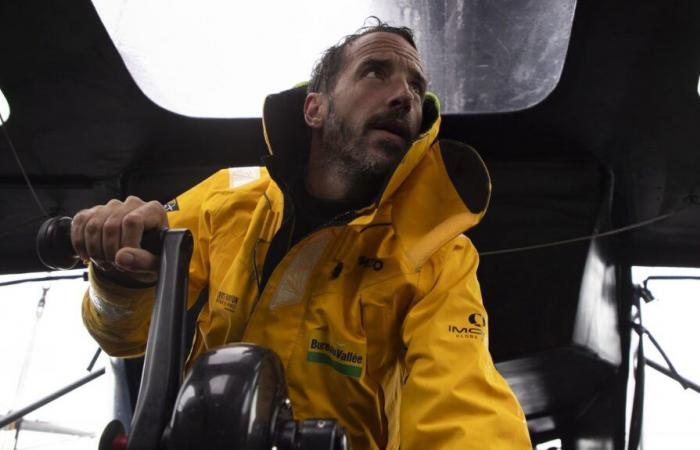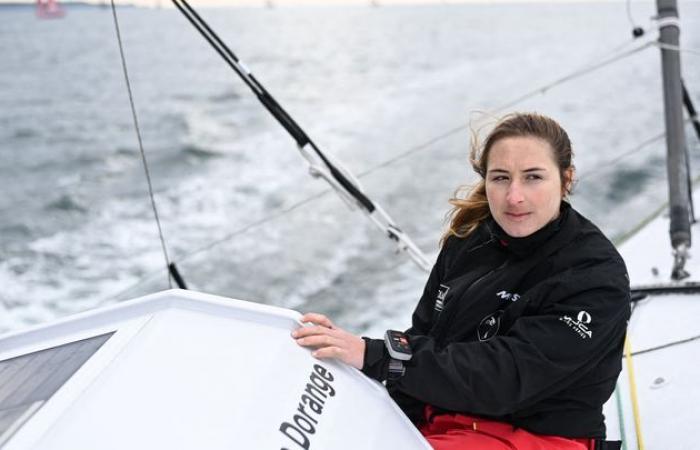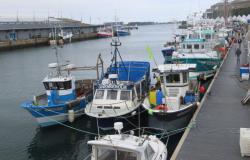In the world of sailing, the Vendée Globe is often nicknamed the Everest of the seas. The comparison is far from trivial. From a mental point of view, this solo round-the-world sailing trip, without stopovers or assistance, is an extraordinary feat, which leads to almost one in two skippers abandoning each edition. “The Vendée Globe is the race that requires the best mental capacity. Without boasting, it is one of the most difficult exercises in sport. It is not for nothing that it takes place every four years, because that can crush sailors”, recognizes Jérémie Beyou, at the start of his fifth Vendée Globe. “There is nothing more extreme than the Vendée Globe. The ocean is the most hostile place for man. And there is nothing else that requires a man or woman to to be this far away, this alone, this long”, support the skipper Eric Bellion.
To prepare for such a personal challenge, skippers all have different methods. “My preparation is to be on the site every day, to tinker, to know my boat well and to have confidence in its abilities”, slices Jean Le Cam, who has always finished in the top 10 with the exception of 2008, when he retired. At the dawn of his sixth consecutive start, the 65-year-old Breton has never needed a mental trainer. “It could even confuse my brain rather than anything else”, he smiled.
The Breton is one of the rare sailors at the start of this Vendée Globe not to have the slightest mental preparation. To be ready for “the greatest adventure” of her life, Violette Dorange, “work hard” this area : “I have been working on this subject since I started sailing, at eight years old, always with the same person. At the time, it was already an asset because I was the only one doing it”testifies the 23-year-old sailor, the youngest in this edition.
On the program for the skipper of Devenir: sophrology and visualization exercises, discussions around emotions and learning about time management. “I do three-month cycles (the average time to complete the race) in order to see how quickly time passes, to reassure myself”, summarizes the one whose objective is to complete this world tour.
“There is the management of stress, the unknown, boredom at sea or fears, to analyze what I feel and learn to play down.”
Violette Dorange, skipper of Devenirat franceinfo: sport
To play down the drama is also what Jérémie Beyou managed to do in 2020. With the hat of favorite, he was forced to return to Les Sables d'Olonne to repair his Imoca, victim of damage, before starting new days later, far behind the leading pack. “Working with my psychologist at the time really helped me. Knowing myself well, knowing where I wanted to go and how, while remembering what we had done to prepare for this race, m “allowed me to find the resources to start again. It's one of the most complicated events of my sporting career.” recalls the skipper of Charal, ultimately 13th during this edition. From now on, he takes a step back with the status of favorite which “does not bring points or miles in advance”.
Like Jérémie Beyou, Charlie Dalin, second in the last Vendée Globe, learned from his first participation about managing emotions “exacerbated” by this race. “We can be happy in the morning, even euphoric because we have widened the gap with the others, and at noon, be a little at the bottom of the hole because we broke a part”, underlines the skipper of Macif santé prévoyance.
“Before the Vendée Globe, I thought I would be a metronome in terms of emotions and be able to withstand it. But in fact, it gets to you. Unlike other sports, we don't have coaches or supporters at the edge of the field to re-mobilize us.”
Charlie Dalin, skipper Macif health insuranceat franceinfo: sport
For his second participation, Eric Bellion knows the importance of the mind: “In 2020, I worked on my motivations to participate. I didn't want to have something to prove to someone. Today, I am more focused on the competition aspect, on taking responsibility for myself in as a competitor, we also prepared all possible scenarios to best react to hard blows. confides the skipper of Stand as one. “Perhaps the situations will have nothing to do with what we have prepared, but he will have the keys to keep his cool and find solutions based on the subjects that we have already discussed together,” explains Gérard Vaillant, his mental coach, who increased the pace of the sessions as the departure approached.
“The work here is to realize that the way you think about the problem is what creates the problem.”
Gérard Vaillant, mental coach of Eric Bellion and Jérémie Beyouat franceinfo: sport
This work is based on discussions and the expression of emotions, but also on cardiac coherence to manage stress and self-hypnosis. “There is not necessarily a defined program, but rather support based on their needs and their feelings of the day,” describes the specialist, who also follows Jérémie Beyou.
For example, a few weeks before departure, Eric Bellion became aware of what the separation from his family entailed. “It was the biggest difficulty of this edition, because before, I didn’t leave any family behind”he confides. “By verbalizing what he felt, Eric realized that it was not abandonment, and that his daughter would be safe and well cared for despite his absence,” explains Gérard Vaillant. With this additional family setting, Eric Bellion also worked on other aspects, notably non-racing events. “J’worked on specific scenarios like this where my daughter had died, which is not something you are naturally going to prepare for”, recognizes Eric Bellion.
If today the mental aspect has become an essential area of preparation for many sailors, many have, at first glance, underestimated it. Starting with Louis Burton: “At 26, on my first Vendée Globe, I remember that I didn't pay attention to mental preparation, because I was in a good place in my head. But on my return from the 2016 edition, looking to increase the level performance, I realized that it fulfilled an important role in the management of the race”, admits the skipper of Bureau Vallée, who is aiming for better than his third place in 2021. Since then, he has intensified his work on managing external disturbances (such as a breakage on the boat or a bad navigation choice), managing pressure and expectations, or even the disconnection with the problems on land.
To complete his preparation, Louis Burton was able to benefit from an unprecedented immersion within the Raid, one month to the day before the departure of the fleet. “I was just told: ‘Come at 9 a.m., and take sports clothes.’ But it had nothing to do with sports training,” he says. In a real conditioning exercise, Louis Burton followed the elite group: “When we got out of the van, five men violently disarmed us. We were then taken to a cellar, hooded and handcuffed. Liters and liters of water were poured over our heads. He has I had to manage to free myself. This nIt wasn't a game, it was a real training sequence. J'was totally pushed to my limits”, confesses Louis Burton. Ten days after the exercise, he still had black marks on his fingers and back caused by foul ball impacts.
“The stress factor is such that it pushes you to think and act quickly, and to remain efficient despite the pressure.”
Louis Burton, skipper Bureau Valléeat franceinfo: sport
An experience transformed into an asset. “It showed me that you had to pay attention to yourself, in order to remain efficient in your missions and not put yourself in danger. It also trained me to make decisions and act for performance, regardless of the circumstances or our state. I will reiterate without hesitation. I am firmly convinced that I leave with an advantage over the others”, estimated Louis Burton.
Managing the departure, the crowd followed by the solitude of several months, before the large crowds upon arrival, is also part of the areas of mental preparation. “When you cross the start line and the last support boat returns to port, you can have a feeling of free fall without knowing when it will stop. You have to understand it, tell yourself that it's normal and manage to concentrate straight away.” underlines Louis Burton.
Once arrived safely, the “Vendée blues” can also watch for: “After the Vendée, we would like to be able to rest for six months. There may be an emotional downturn, either because you are too tired or it went badly, or conversely, because you won and it went to your brain”, he lists. Now essential in a sport that has become professional, mental preparation is no longer, for the majority of the fleet, an adjustment variable. “Without mental preparation, some skippers find it very difficult to cope with the difficulties of the competition, analyzes the mental coach, Gérard Vaillant. They leave with a sword of Damocles hanging over their heads, and can become the weak link in their project.”







